“It’s been a long time since the last revolutions and the faggots and their friends are still not free.” Published in 1977, this passage from Larry Mitchell and Ned Asta‘s The Faggots and Their Friends Between Revolutions sets the scene for a radically reimagined history of the world told through a queer lens where fantasy meets liberation. Having become unavailable and reissued on the occasion of the fiftieth anniversary of the Stonewall riots because of its enduring relevance, this cult book of fables and myths serves as the starting point for a new music theatre adaptation from composer Philip Venables and director Ted Huffman.
Together they conjure up a world that takes the original text on a kaleidoscopic journey that ignores boundaries just like the characters on stage do, drawing on theater, dance, and song from the Baroque to Broadway and beyond. The performers serve as actors, storytellers, and musicians all rolled into one, continually swapping roles while doing away with gender and genre norms and replacing them with unapologetic individuality and a lust for life. Their deeply personal stories prove both comforting and healing when shared through community in a colorful, madcap, and profound patchwork. The resulting cabaret-like spectacle is both vulnerable and daring, a fantastic parable hiding a political manifesto for survival that gives voice to the marginalized and oppressed everywhere.
Guardian Preview >
New York Times Preview >
Introductory Essay by Patrick O’Connell >
Synopsis
A long time before the first revolutions, the faggots and their friends lived in harmony with one another. There was no such thing as a man. But one day some faggots had a change of heart. They started destroying nature and stopped touching the other faggots. They became men. Then the first revolutions broke out, destroying the great cultures of women. The faggots tried to heal the men, but the men didn’t want to be cured. Instead, they enslaved others, murdered many of the faggots, and began attacking anyone who wasn’t like them. The second revolutions, more than a thousand years later, made many men less poor, but some men even richer and more powerful.
The faggots and their friends lived in the city of Ramrod, the largest city of men and an empire in decline. While the men dreamed of papers and acted like machines, the faggots refused to celebrate the men’s actions. They did work for the men without recognition. They cultivated beauty, harmony and peace — things which the men knew nothing about.
The fairies left Ramrod and instead lived in the mountains and forests. When the faggots from Ramrod visited the fairies, they felt like they were living in a dream. The faggots also sought proximity to women from whom they learned wisdom and magic. With them they were able to make plans to overthrow the men. But one night the men appeared armed at the faggots and their friends, who immediately fled. Only the Queens took to the streets and revolted.
But the men had another trick: they gradually allowed the faggots to live as if they were men. So the faggots became more and more like men until one day they were no longer distinguishable from them. But the faggots gradually saw through the men’s trick. They realized that the men’s deathly system depends on them, but they themselves do not depend on men. This is how the third revolutions began.
Their fight was bloody but successful: the world of men collapsed and men ceased to be men — and the faggots and their friends ceased to be what the men had made them to be. They began to heal.
Lea Fussenegger
Details
The Faggots and their Friends Between Revolutions was co-commissioned and co-produced by Factory International, Festival d’Aix-en-Provence, Bregenzer Festspiele, Southbank Centre London, the Holland Festival, the Ruhrtriennale and NYU Skirball Theater.
Year: 2023
Duration: c.90 minutes, no interval, in two parts.
Text: Ted Huffman, based on the book of the same name by Larry Mitchell and Ned Asta, courtesy of Nightboat Books.
Text in English.
Published by Ricordi Musikverlag GmbH
Cast
The cast is flexible in both skill set and number. Casting choices will depend on the staging one wants to make and the amount of instrumental doubling available in the people you have.
It is crucial that everyone sings, speaks, moves and plays instruments, in a non-hierarchical staging.
There are no character roles, and therefore none of the casting or vocal requirements imply any gender requirements.
Everyone is a story-teller; everyone is an equal soloist; everyone is on stage and participating; everyone is performing the show from memory.
The first production used 15 performers, including S.MS.A.T.T.Bar, and instruments: Violin, Viola da Gamba, Saxophone (Sop.Alto.Bari), Flute (+Picc+Alto), Piano, Harpsichord, Accordion, Theorbo / Archlute, Lever Harp, Hammond Organ, various percussion, learner violins for the cast, penny whistles, harmonica, etc.
Original Production
Cast: Kerry Bursey, Jacob Garside, Katherine Goforth / Danny Shelvey, Kit Green, Conor Gricmanis, Deepa Johnny / Tamara Banjesevic / Lauren Young, Mariamielle Lamagat, Eric Lamb, Themba Mvula, Yandass Ndlovo, Yshani Perinpanayagam, Meriel Price, Collin Shay, Joy Smith, Sally Swanson / Valerie Barr.
World Premiere: 29th June 2023, HOME Theatre, Manchester UK.
Director: Ted Huffman
Music Direction: Yshani Perinpanayagam
Choreography & Costume Design: Theo Clinkard
Set Design: Rosie Elnile
Lighting Designer: Bertrand Couderc
Sound Design: Simon Hendry
Dramaturg: Scottee
Costume Collaborator: Sophie Donaldson
Stage Manager: Bonnie Poole
Deputy Stage Manager: Sorcha Roise
Buy Score >
Hire performance materials >
Press
“Venables’s score is a delirious stylistic fantasia, with elements of folk, jazzy turns of phrase and Baroque instrumentation. He exercises a restraint similar to Benjamin’s, and is explicit, to comic effect, only when he is at his most prurient: An episode near the beginning recounts “the ritual” of cruising, building toward a climax of “ecstatic communion” and the exchange of something vulgar that can’t be repeated here, before the music quickly subsides to a piano. The Richard Strauss of “Der Rosenkavalier” and “Symphonia Domestica” would be proud.” — Josh Barone, New York Times (Aix Festival)
“For their third collaboration, Venables, a British composer, and Huffman, an American librettist and director, have created a joyous and affirmative musical theater work. Like its source material, the show lays out an alterative world history defined by the endless struggle between queer people and their allies on the one hand, and the guardians of the patriarchy, known simply as “The Men,” on the other. In celebrating the heterodox, the radical, the fringe and even the deviant, the show’s form matches its content, with a bold mixture of musical styles — baroque, folk, pop — and theatrical devices. As exuberant as it is slippery, its unconventional brand of beauty felt right at home at the Ruhrtriennale.“ — A.J. Goldmann, New York Time (Ruhrtriennale)
“its meld of music, dance, and opera transcends the form into something magical.” — Lost in Theatreland (5 stars)
“This masterpiece does not rewrite history, it radically retells it… Prepare for passion, poignancy and pithiness… this show is bursting with joy throughout.” — Manchester Evening News (5 stars)
“An exquisite, revolutionary riot with a cavalcade of queer talent calling out the need to fight for queer joy and not to assimilate… The Faggots and Their Friends is a powerful reminder to keep fighting for queer joy and resist living the status quo in a heavenly punk opera for all.” — To Do List (5 stars)
“At times chaotic but never less than virtuosic, Philip Venables’ take on Larry Mitchell’s 70s manifesto is gritty but sensual and extravagant… served up with such raw energy and panache, it’s also irresistibly, unforgettably compelling.” — The Guardian (4 stars)
“Larry Mitchell’s 1977 cult book The Faggots and Their Friends Between Revolutions – part queer manifesto, part fable – explodes into life in Philip Venables and Ted Huffman’s exhilarating stage version. It’s as resistant to easy classification as its source material, blending theatre, opera, movement and music… Venables’ distinct, original music is also key to the narrative momentum: dramatic strings convey the violence of the men; soaring arias capture the community’s sorrow or yearning; a solo on the cello or violin distils a mood. There’s a baroque vibe, with a theorbo and a harpsichord alongside flutes and harps, but the music can be anarchic, audacious and a lot of fun, too. One song about how much the men love paperwork shifts from the cast rhythmically scrunching sheets of paper to a flurry of salsa and into an accordion-led music-hall-style knees-up… a genuinely fresh and distinctive new work that gladdens the heart.” — The Stage (4 stars)
“this piece has a directness and a lyrical memorability that is compelling. Sometimes it might be a single instrument — a harp, a cello, a fiddle — hauntingly underscoring the voice. Elsewhere he ramps up all available resources in rambunctious, stamping dances that evoke one of those wild Balkan bands in full cry.” — The Times (4 stars)
“The Faggots and Their Friends Between Revolutions is unlike anything else being shown today… One moment, it is eerie and heartbreaking, the next it is joyous and stirring… Radical and playful, The Faggots and Their Friends Between Revolutions brings together theatre, dance and song for the ultimate anarchic bedtime story.” — I love Manchester.
Productions of The Faggots and their Friends
2025 — Park Avenue Armory, New York City
2024 — Ruhrtriennale
2024 — Holland Festival
2024 — Southbank Centre, London
2023 — Bregenzer Festspiele
2023 — Festival d’Aix-en-Provence
2023 — Manchester International Festival
News about The Faggots and their Friends
-
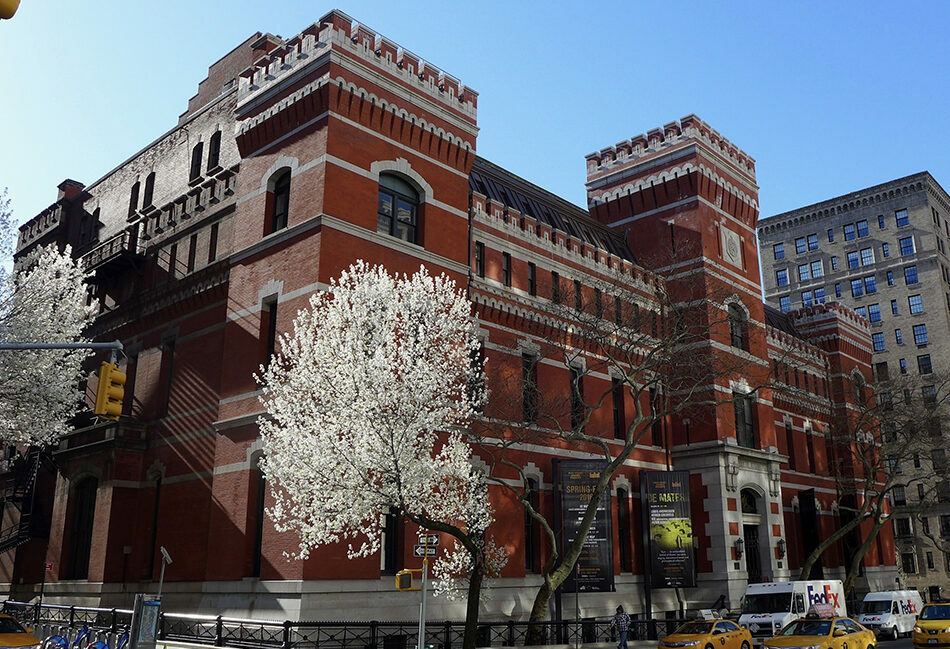
Faggots and their Friends announced at the Park Avenue Armory, New York.
The North American premiere of The Faggots and their Friends Between Revolutions has been announced at the prestigious Park Avenue Armory in New York City. Ten performances of the original…
-
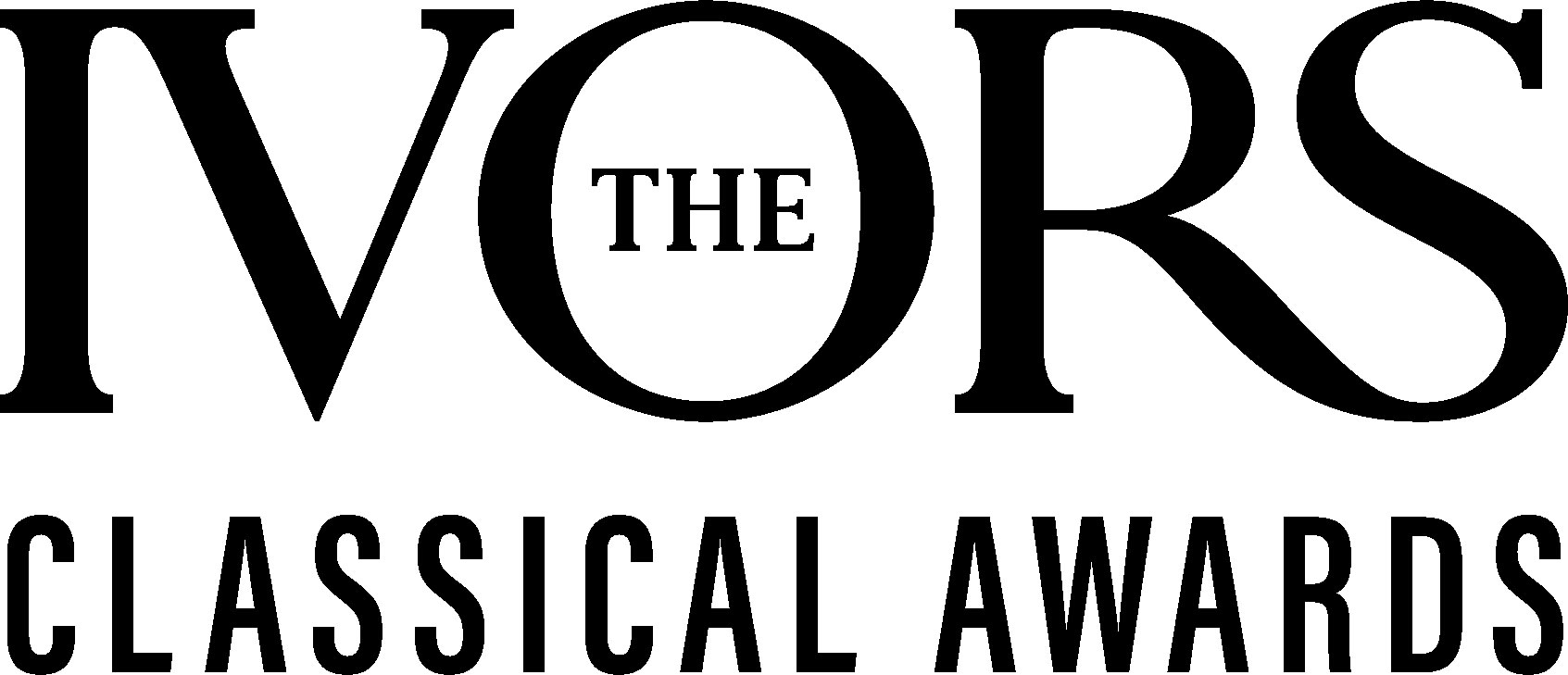
Faggots and their Friends nominated for Ivors Award
The Faggots and their Friends Between Revolutions has been shortlisted for the Stage Works category of the 2024 Ivors Classical Awards. The awards ceremony will take place at the British…
-

Faggots and their Friends announced at the Ruhrtriennale
The Faggots and their Friends Between Revolutions has just been announced in this year’s Ruhrtriennale in Bochum, Germany. Four performances will take place from 17th—20th August 2024 in the Jahrhunderthalle…
-

Faggots and their Friends announced at Holland Festival
The Faggots and their Friends Between Revolutions has just been announced in this year’s Holland Festival in Amsterdam. The performances will take place on 13th and 14th June 2024 in…
-
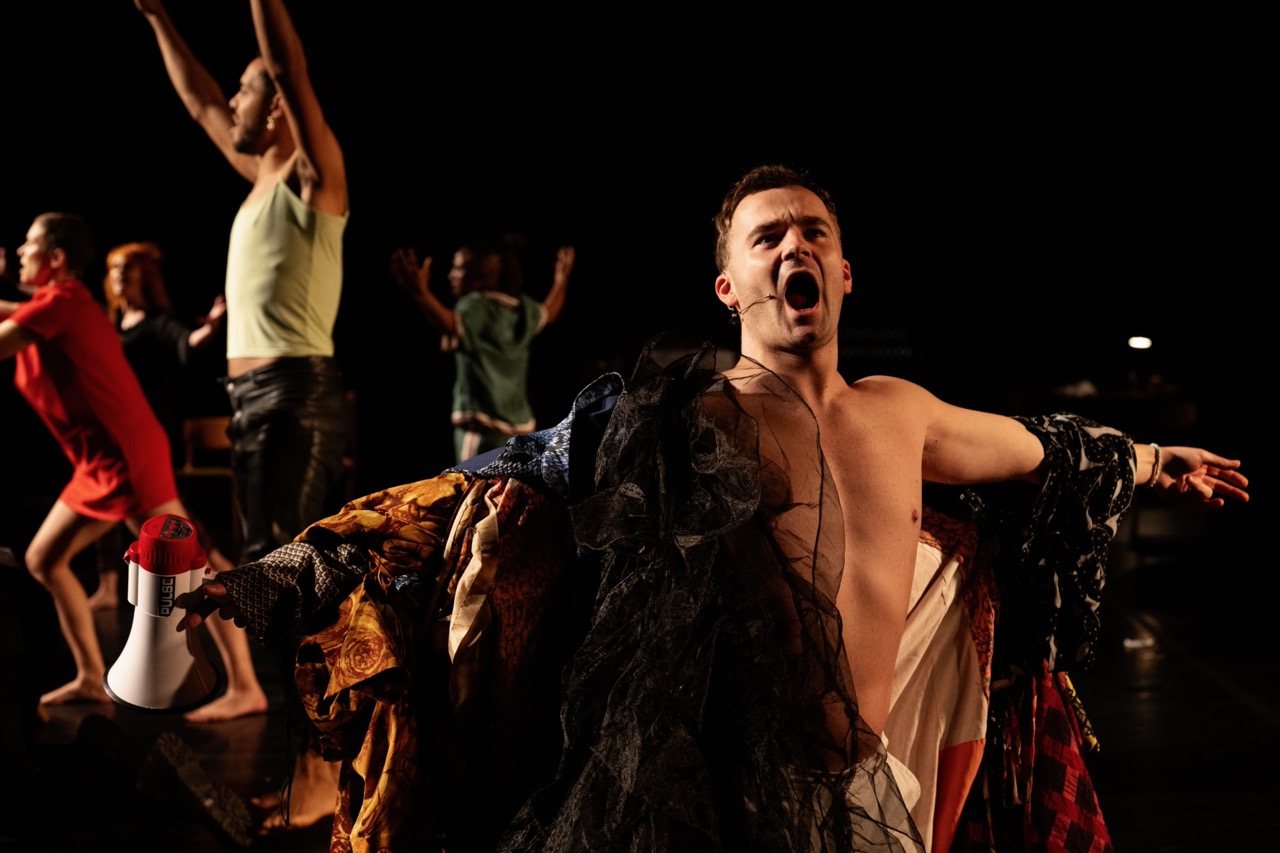
Great reviews for FATFBR at the Southbank Centre
The Faggots and their Friends Between Revolutions completed its four-night run at the Southbank Centre last week to packed, lively audiences. Here is a selection of the reviews, all very…
-
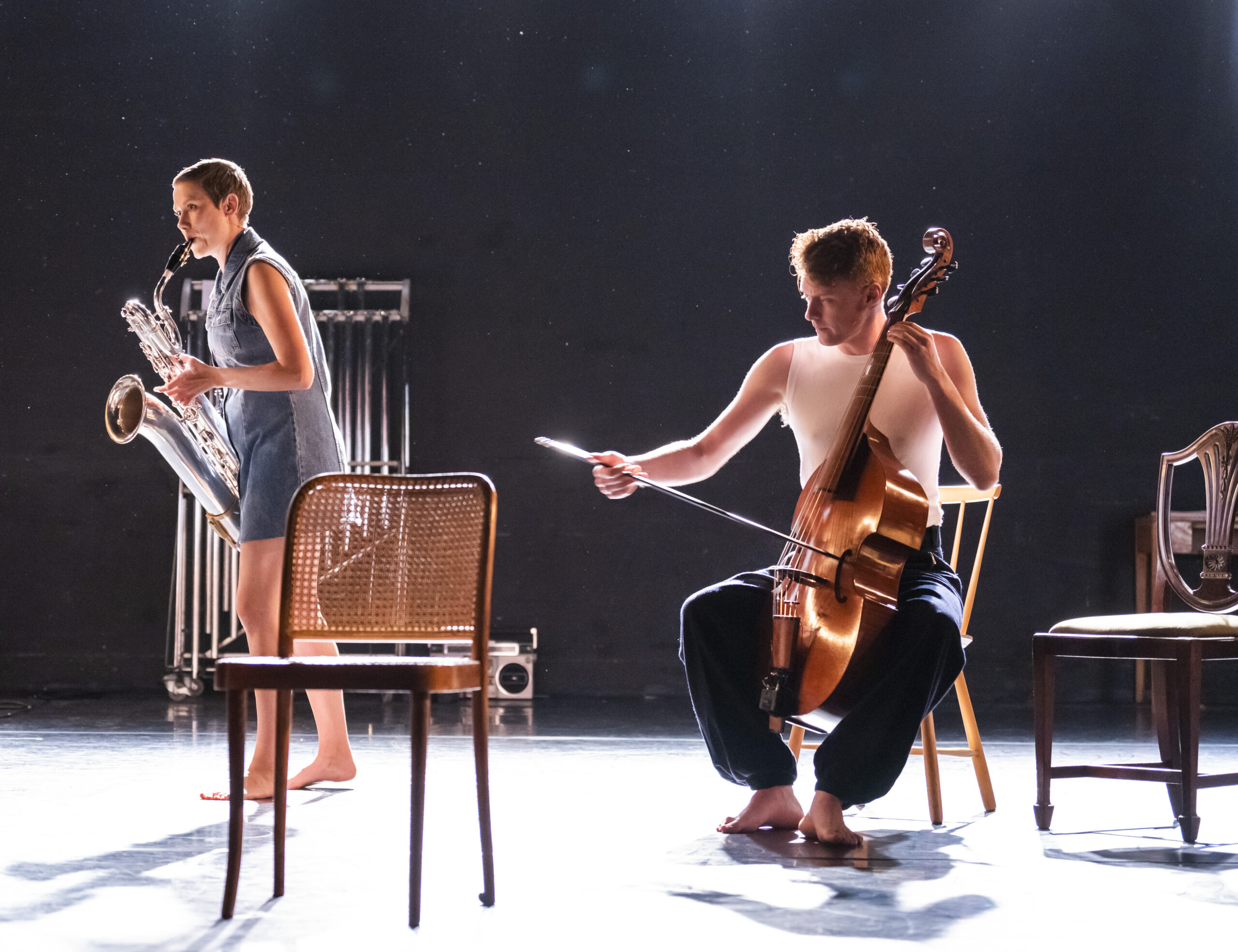
Faggots and their Friends announced at Southbank Centre
Dates for The Faggots and their Friends Between Revolutions have been announced at London’s Southbank Centre, playing four shows in the Queen Elizabeth Hall on 25—28th January 2024. This music…
-
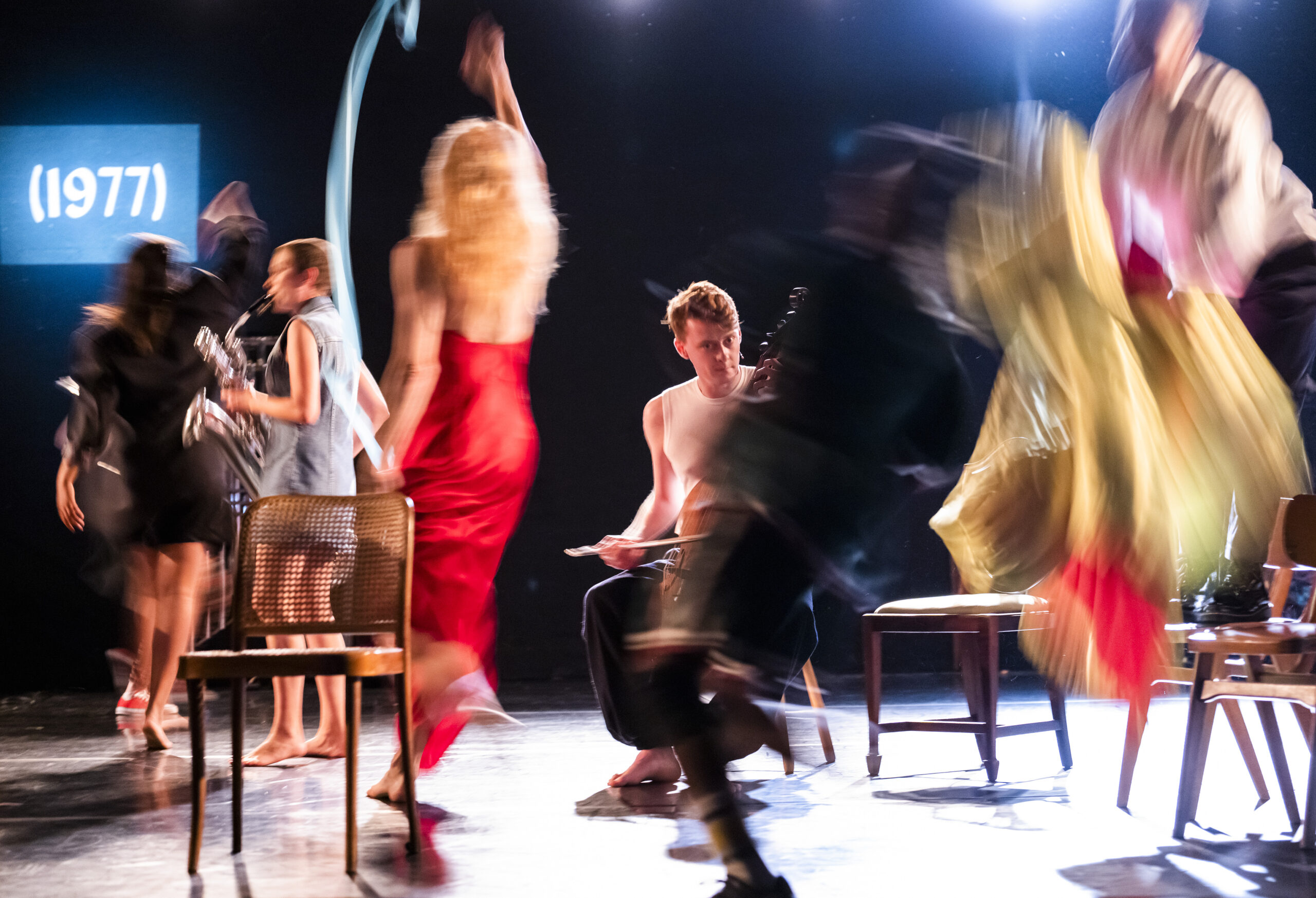
Press images of The Faggots and their Friends Between Revolutions by Tristram Kenton.
Some production images from the Manchester International Festival production of The Faggots and their Friends Between Revolutions, June 2023 (based on the book by Larry Mitchell and Ned Asta 1977).…
-
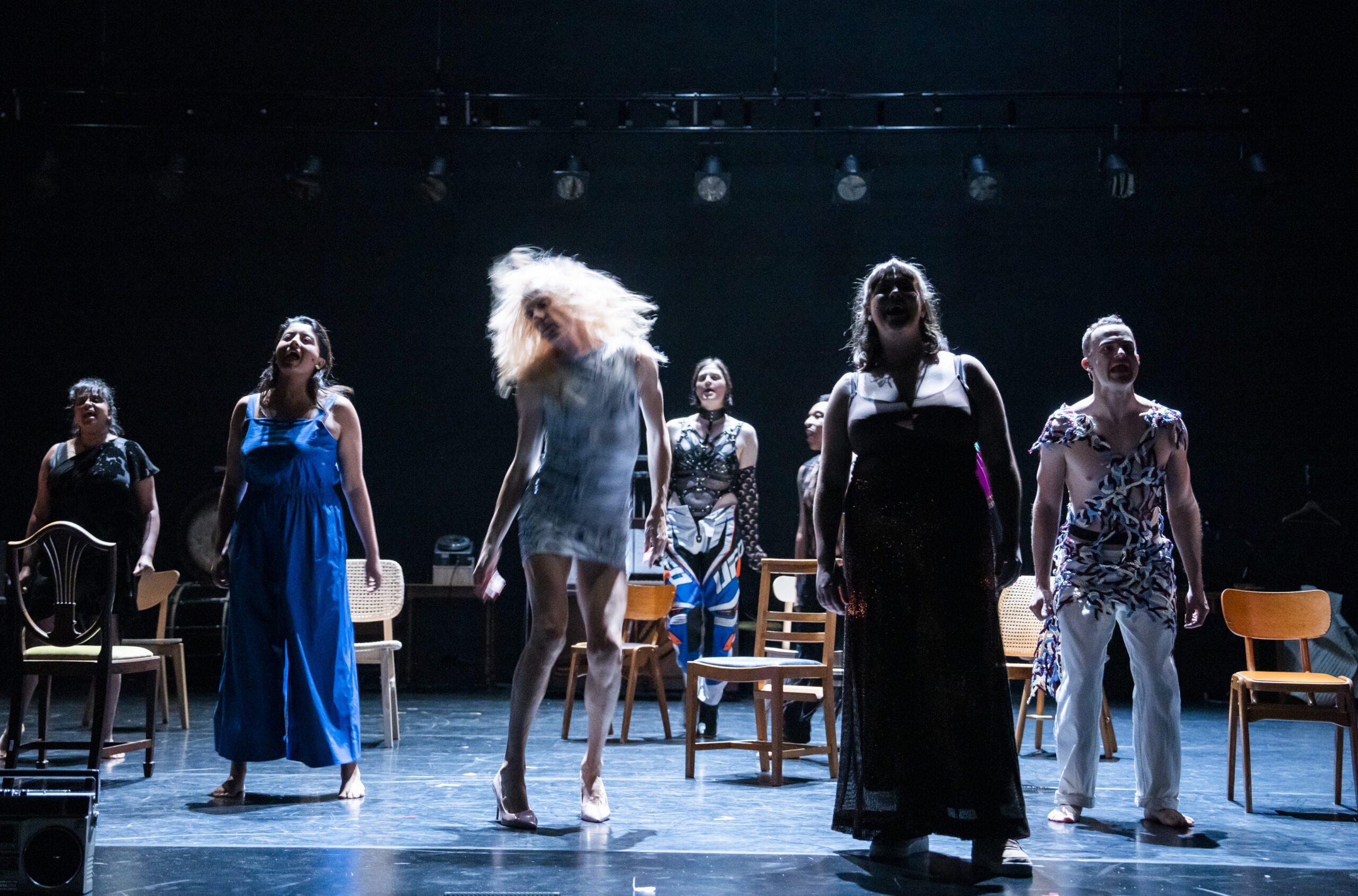
Press coverage of Faggots and their Friends at Manchester International Festival
‘The Faggots and their Friends Between Revolutions‘ received its world premiere on 29th June 2023 at HOME Theatre as part of Manchester International Festival. There were some notable previews in…
-
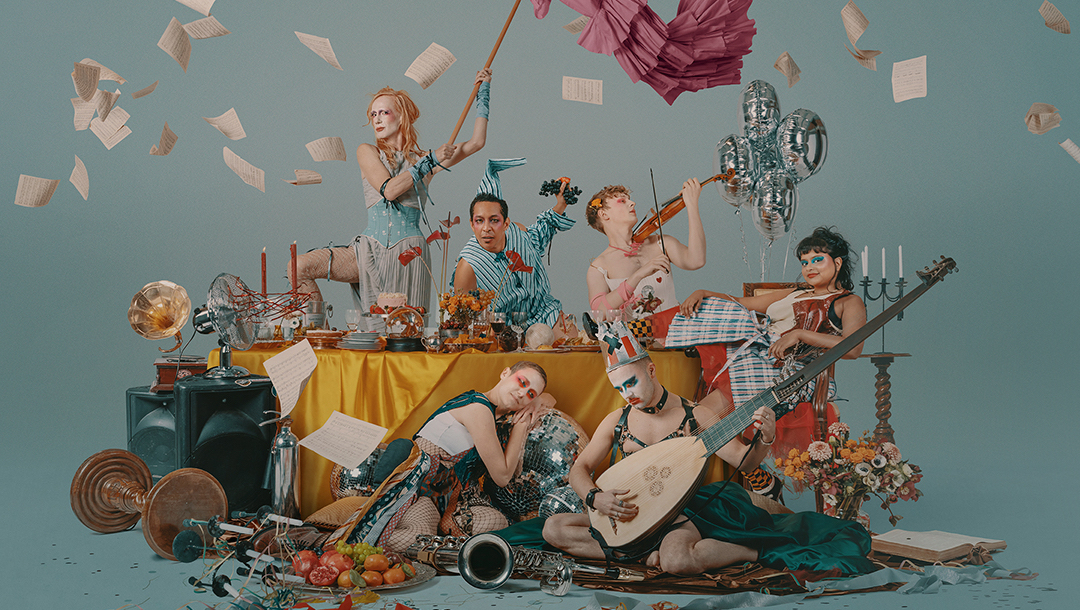
The Faggots and their Friends Between Revolutions at Manchester International Festival
The Faggots and their Friends Between Revolutions has just been announced by Factory International as part of this year’s Manchester International Festival. This will be the world premiere, on 29th…
-
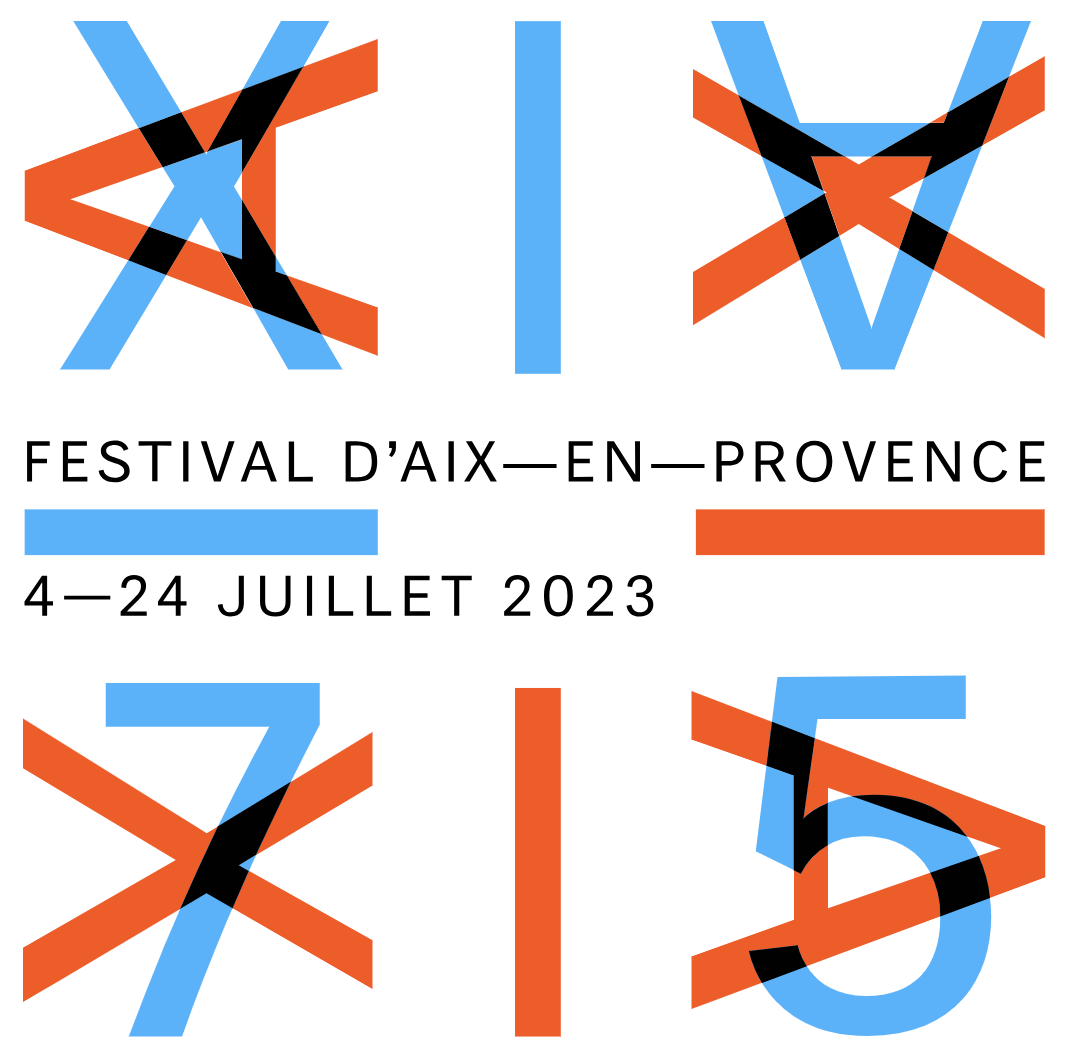
“The Faggots and their Friends Between Revolutions” at Aix-en-Provence Festival
The Faggots and their Friends Between Revolutions, has just been announced by Festival d’Aix-en-Provence in France, in July 2023. This will not be the world premiere (which is still to…
-
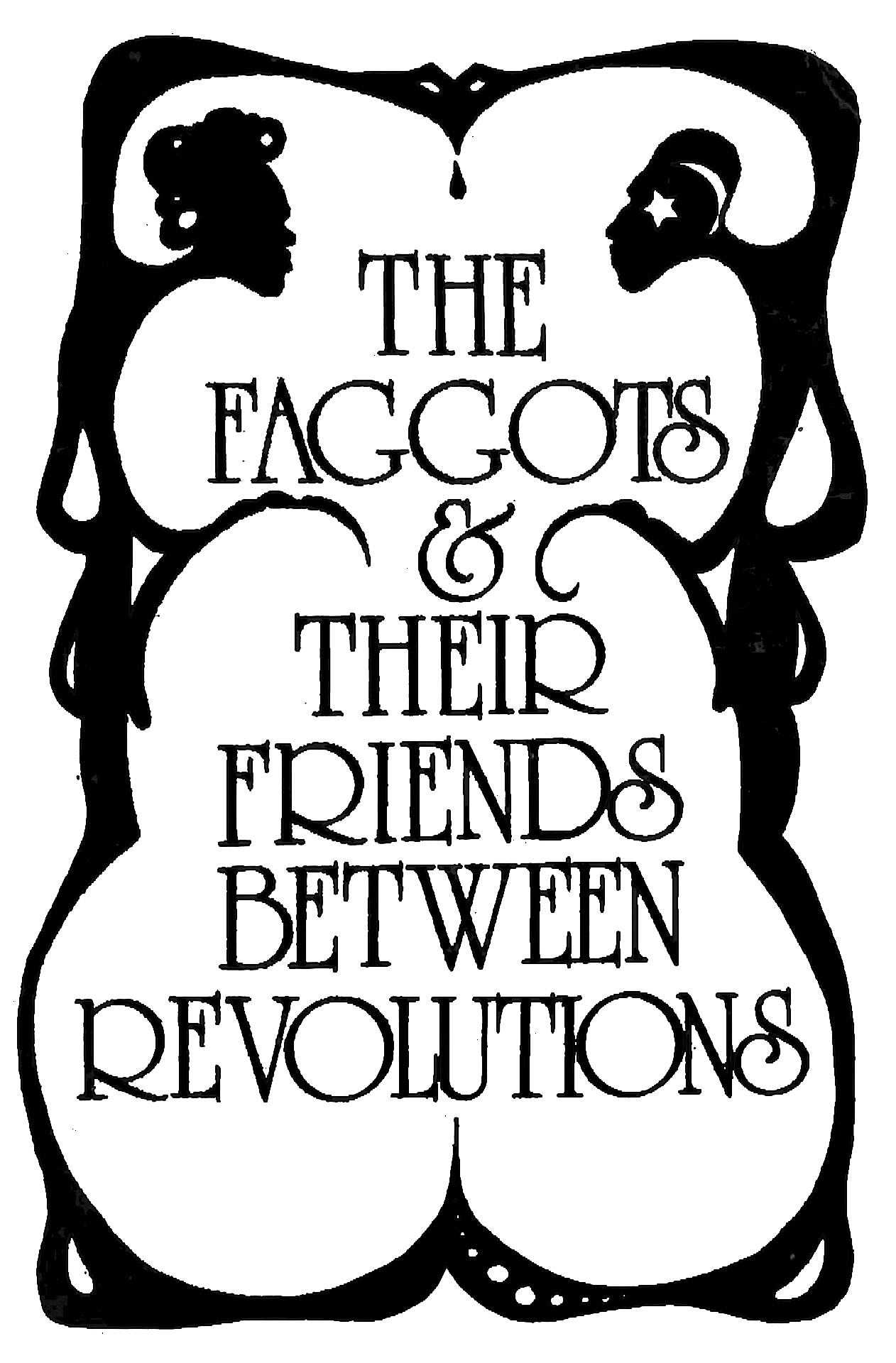
“The Faggots and their Friends Between Revolutions” announced at Bregenz Festival
My next opera, The Faggots and their Friends Between Revolutions, has just been announced by Bregenz Festival in Austria, in July 2023. This will not be the world premiere (which…